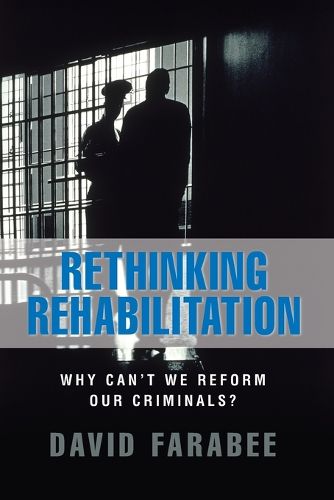Readings Newsletter
Become a Readings Member to make your shopping experience even easier.
Sign in or sign up for free!
You’re not far away from qualifying for FREE standard shipping within Australia
You’ve qualified for FREE standard shipping within Australia
The cart is loading…






Most Americans readily support rehabilitation for convicted offenders - after all, on the face of it, many of these people have been dealt a bad hand, or at least have made poor choices, and surely would mend their ways if only they had access to enlightened forms of treatment, vocational training, or other programs. Yet an objective assessment of the research literature reveals that the majority of these rehabilitative programs have little or no lasting impact on recidivism. In this monograph, David Farabee critically reviews the most common forms of offender rehabilitation and outlines their underlying assumptions about the causes of crime (e.g., drug use, poor education, limited vocational skills, etc.). He contends that fundamental principles of deterrence, such as closer monitoring of parolees, swift application of sanctions, and indeterminate community supervision - the completion of which would be tied to the offender’s performance - are in the long run far more humane than the progressive approaches that are becoming more popular today.
$9.00 standard shipping within Australia
FREE standard shipping within Australia for orders over $100.00
Express & International shipping calculated at checkout
Most Americans readily support rehabilitation for convicted offenders - after all, on the face of it, many of these people have been dealt a bad hand, or at least have made poor choices, and surely would mend their ways if only they had access to enlightened forms of treatment, vocational training, or other programs. Yet an objective assessment of the research literature reveals that the majority of these rehabilitative programs have little or no lasting impact on recidivism. In this monograph, David Farabee critically reviews the most common forms of offender rehabilitation and outlines their underlying assumptions about the causes of crime (e.g., drug use, poor education, limited vocational skills, etc.). He contends that fundamental principles of deterrence, such as closer monitoring of parolees, swift application of sanctions, and indeterminate community supervision - the completion of which would be tied to the offender’s performance - are in the long run far more humane than the progressive approaches that are becoming more popular today.